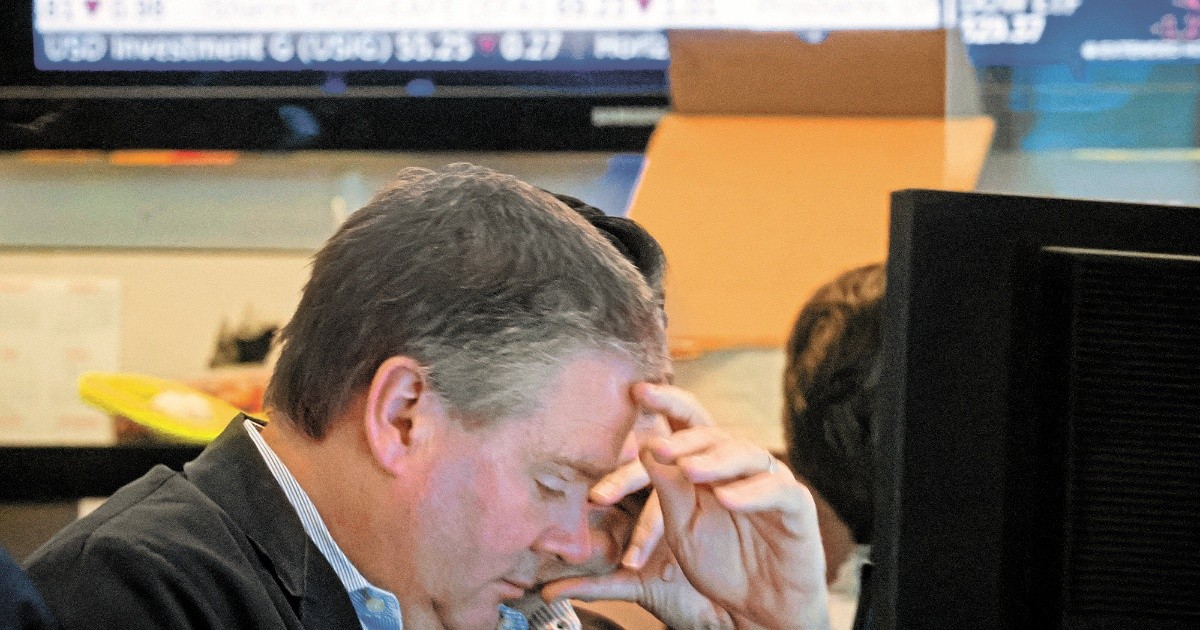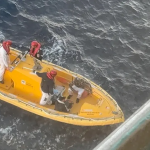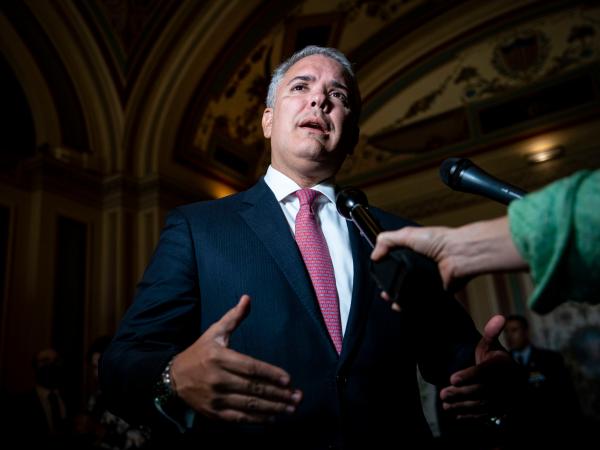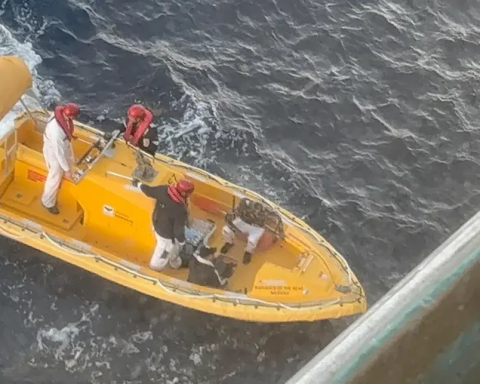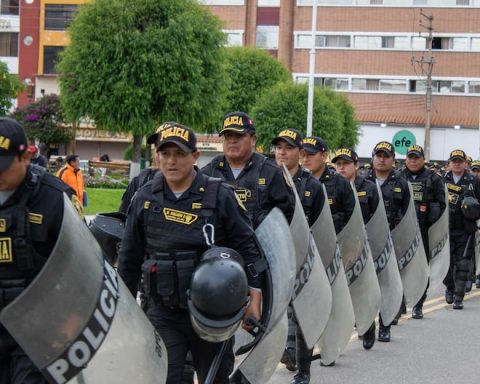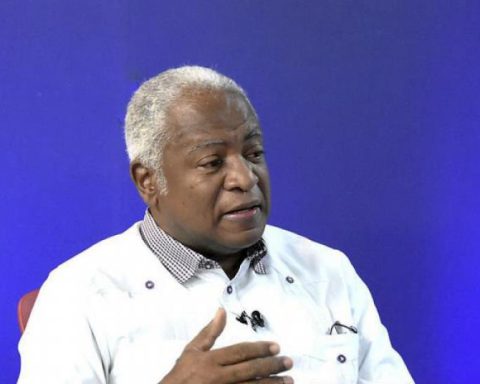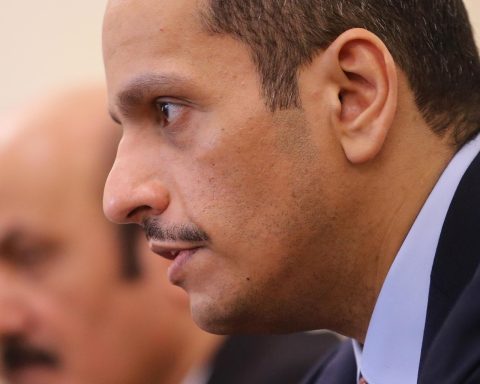Due to the proximity of the conflict, the economic sanctions against Russia and the increase in the prices of raw materials such as natural gas and oil, the stock indices in Europe accumulate greater falls than in other regions.
The German DAX index has fallen 8.13% since the beginning of the conflict in the early hours of Thursday, February 24, only below the CAC 40 of France, which registers a loss of 8.46% in that period.
Thus, the Ibex 35 index of the Madrid Stock Exchange has lost 4.39% and the FTSE 100 has fallen 5.32% since the beginning of the Russian invasion.
Nadia Montes de Oca, CFA and Senior Portfolio Manager at Franklin Templeton Mexico, explained that “the armed conflict, the sanctions, the interruption in the supply of raw materials, fertilizers and gas have generated great volatility in international markets, derived from the uncertainty ”.
He said that “in the European stock markets, the sectors that have been most affected are those related to energy, automotive production, airlines and financials. This is a result of the sanctions, the prospect of shortage of supplies, as a consequence, the rise in prices in supplies”.
Since the beginning of the armed conflict, some of the companies that have fallen the most in the European stock markets are the German automobile companies Volkswagen (-23.15%) and BMW (-21.41%), as well as the Spanish textile company Inditex (-12.35%).
Amin Vera, deputy director of Economic Analysis at Black Wallstreet Capital, explained that “the economic sanctions imposed on Russia have also affected the two main sectors in Europe, which are mainly industry and manufacturing, as well as financial services, since natural gas It is the raw material for industry. These are sectors that have been strongly impacted.”
He added that “in the case of countries such as Spain, Italy, France and Portugal, and other smaller ones, the import of oil and gas is focused on domestic use as heating. But in the case of Germany it is for industrial use, which has impacted it more than the rest of Europe”.
This Thursday, the Governing Council of the European Central Bank suggested that the asset buyback program (APP) could end earlier than planned, due to high levels of inflation.
“Monthly net purchases under the PPP will amount to €40 billion in April, €30 billion in May and €20 billion in June,” the ECB said.
In fact, inflation in the Euro zone stood at 5.8% per year, driven by the rise in energy prices that represented 31.7%, food, alcohol and tobacco 4.1% and services 2.5%, which were the ones that increased the most in February of this 2022 in its year-on-year comparison.
fearful asian
“The geopolitical tension between Russia and Ukraine also raises doubts about whether China is going to take advantage of the geopolitical imbalance to continue expanding the territory, since that country is in conflict with nearby countries,” commented the Black Wallstreet Capital specialist.
The biggest fall is recorded by the Hong Kong Hang Seng index, with a loss of 11.71% since the beginning of the invasion of Ukraine; Shanghai is down 5.53%, Japan’s Nikkei 225 is down 2.87%, India’s Nifty 50 is down 2.74%, and South Korea’s KOSPI is down 1.44% two weeks into the war.
“The government and the Chinese Central Bank have been doing asset buybacks in large amounts, and China is one of the few large countries with low levels of inflation and continued to lower its interest rate, all of which has kept the indices afloat. stocks”, added Vera.
Despite the stimuli that have been granted, the stations in Asia have also lost, as is the case of the video game developer Pinduoduo with a 30.99% drop since the beginning of the invasion of Ukraine, Alibaba has fallen 14.50 and Tencent Holdings has a loss of 13.48 percent.
Opposite side
In the United States, the indices remain resilient, but with losses, the Dow Jones index has a slight gain with 0.13%, the technological NASDAQ has an increase of 0.71% and the S&P 500 advances 0.81% since the beginning of the invasion of Russia in Ukraine.
“The stock markets on Wall Street are more volatile in anticipation of the increase in rate hikes from the United States Federal Reserve, although the conflict does generate tensions among investors, the market awaits the Fed’s statement the following week,” he said. Amin Vera.
On the contrary, Latin American stock markets remain winners, despite the global volatility in the financial system. The main index of the Mexican Stock Exchange, the S&P/BMV IPC, advances 3.94% and the FTSE Biva, of the Institutional Stock Exchange, rises 3.72 percent.
In the BMV, the biggest drops are led by Volaris (-20.67%) due to the increase in oil prices and Grupo Bimbo (-8.87%) that even closed a factory in Ukraine.
“The BMV has not been so affected by the conflict, due to its very particular composition. Most of the listed companies are cataloged within defensive sectors, such as basic consumption, which represents more than a third of the market. In other stock markets, this sector generally represents between 10 and 15% approximately”, commented Nadia Montes de Oca.
Meanwhile, the Brazilian Bovespa index remains with an increase of 1.48%, still supported by an economy of raw materials such as grains. Argentina’s Merval index fell slightly by 1.18% and Colombia’s COLCAP rose by 2.19% in that period.
“In the case of the Latin American economies, they have sought to take advantage of the rise in raw materials. Brazil, for example, has a 35% agribusiness exposure, financial services have driven projects in the agricultural sector. In Colombia, the economy is dependent on oil and gold”, explained Amin Vera.
